Six candidates are vying to replace Theresa May as leader of the Conservative Party and become Prime Minister of the United Kingdom.
Five of the Tory hopefuls took part in a televised debate on Channel 4 last night (June 16) but former foreign secretary Boris Johnson, who is currently leading in the polls, was notably absent.
Successive ballots of Tory MPs are due to take place from tomorrow until Thursday, the candidates with the lowest number of votes being eliminated until only two remain.
Those still in the running tomorrow evening are set to meet in a second debate on BBC One.
The final pair will be put to a vote of the Conservative Party’s 160,000 members on June 22, with a winner expected to be declared around four weeks later.
Outgoing Prime Minister Theresa May remains in charge of the country until her successor is appointed.
RightsInfo has done some digging into how each of the declared candidates stack up on matters of human rights, based on what they have previously said and how they have voted.
1. Boris Johnson, Former Foreign Secretary
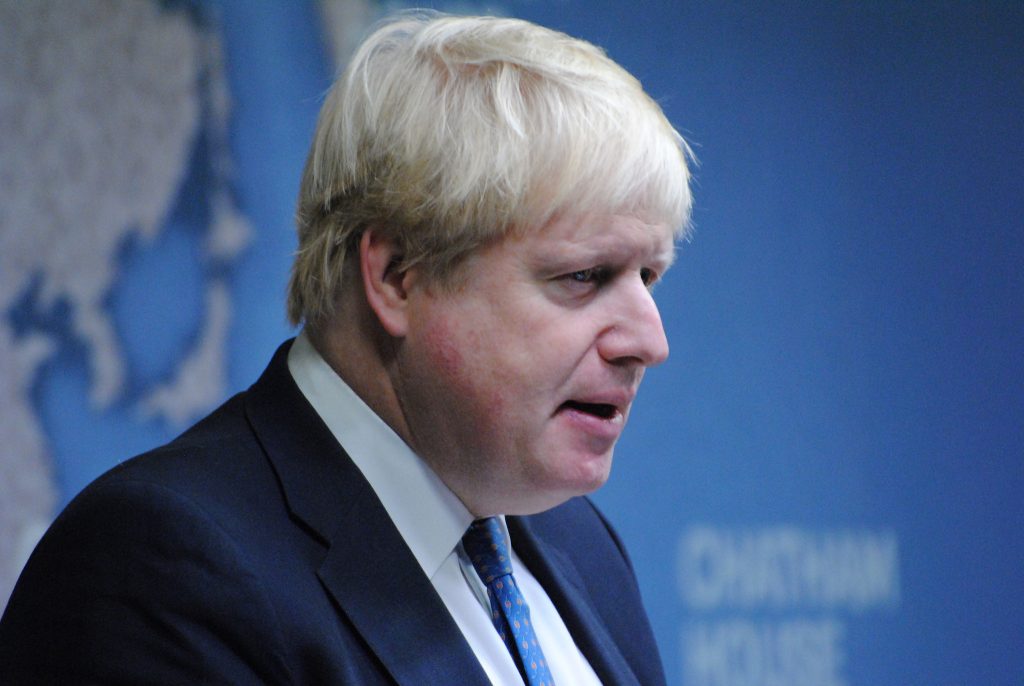
Image Credit: Chatham House/Flickr.
Former Foreign Secretary and Telegraph columnist Johnson is considered by many to be the most likely candidate for the Tory leadership.
Months before resigning from his ministerial post, he said: “Standing up for human rights is not only the right thing; it also helps to create a safer, more prosperous and progressive world.”
He described “championing” human rights as “integral” to the work of the Foreign Office and the everyday work of British diplomats.
Nevertheless, when it came to foreign affairs, watchdog Human Rights Watch (HRW) described his approach to human rights as “weak, inconsistent, and often incoherent”.
HRW’s Advocacy and Press Officer Myrto Tilianaki cited the sale of £4.6bn of arms to Saudi Arabia since the start of the war in Yemen until June last year as a prime example.
In August, Johnson was also referred to the Equality and Human Rights Commission (EHRC) for a controversial Telegraph column in which he compared Muslim women who wear burqas as “looking like letter boxes” – prompting accusations of Islamophobia.
While it branded Mr Johnson’s comments as “inflammatory and divisive”, the EHRC said it had no powers to investigate the matter. The remarks were also deemed not to be in breach of the Conservative Party’s code of conduct.
Monitoring website TheyWorkForYou indicates that Johnson has “generally voted against” laws to promote equality and human rights but has also “generally supported” equal gay rights.
2. Dominic Raab, Former Brexit Secretary
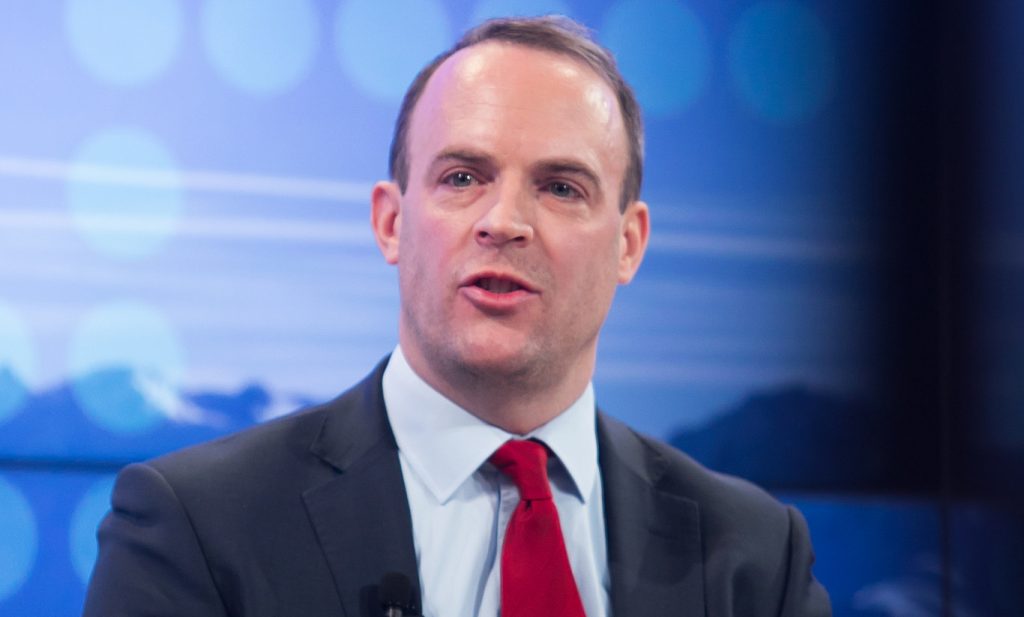
Image Credit: World Economic Forum/Flickr
Ardent Brexiteer Dominic Raab, the MP for Esher and Walton, resigned as Brexit Secretary in November last year after disagreeing with PM May’s deal.
Announcing his resignation on Twitter, he said: “‘I cannot in good conscience support the terms proposed for our deal with the EU.”
Raab has been an outspoken critic of the Human Rights Act (HRA), the piece of legislation which embeds international human rights protections as part of our laws.
In his previous role as Justice Minister, he masterminded plans to replace the Act, claiming that he was worried about the sovereignty of British Parliament and judges, as well as how rights could be expanded.
He also added that he believed the original Human Rights Act was “rushed” and “flawed”.
In 2011 he said “the tabloids blame everything on the HRA and, in my view, the NGOs think it’s perfect. I think there’s a middle ground. The HRA didn’t do a great deal to protect some of our freedoms – against ID cards, the DNA database, against some of the surveillance where children were followed home from school to check their catchment area.”
He has also been dubious about human rights more generally too, saying they ‘run riot’, and are ‘skewed’.
In a Telegraph column, he pointed to a man who could not be deported following a conviction related to the 2011 London Riots, criticising the right to family life for preventing his immediate deportation, saying “Article 8 is being expanded to protect the criminals’ rights not the families” and making human rights a “dirty word”.
He argued the government should introduce legislation to refuse foreign criminals the right to appeal deportation with their Article 8 rights.
3. Rory Stewart, International Development Secretary
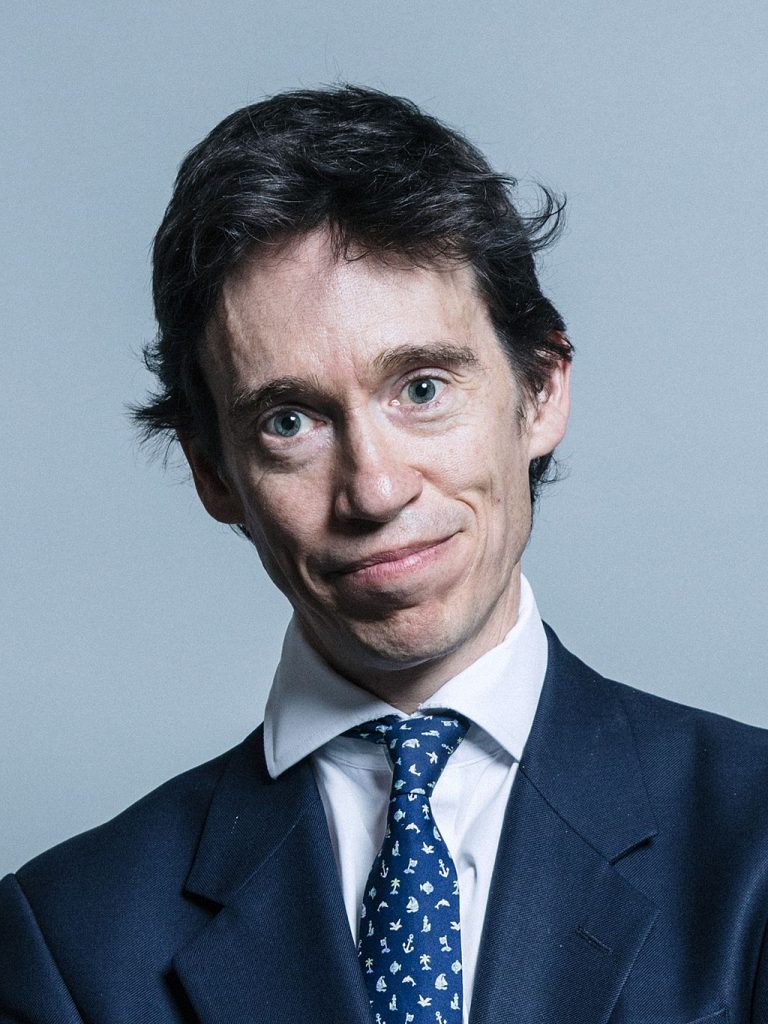
Image Credit: Chris McAndrew/Wikimedia
Before entering into politics, Rory Stewart briefly worked as an infantry officer in the Army before joining the diplomatic service. While on leave from service, he walked for 21 months, crossing Iran, Afghanistan, Pakistan, India and Nepal.
He was elected to Parliament in 2010 as the MP for Penrith and The Border and appointed International Development Secretary this month, after previously serving as a Minister in the Justice Department and Foreign Office.
Human rights are based on notions of dignity and of inviolability, and they are in their nature universal.
Rory Stewart, Secretary of State for International Development
Stewart became a professor of human rights at Harvard University in 2010, aged only 37.
In a 2013 parliamentary debate, he appeared to speak in detail about the philosophical merits of human rights, saying: “Human rights are based on notions of dignity and of inviolability, and they are in their nature universal.
“To say that somebody has a human right is a statement about their moral status.”
However, he also criticised the European Court of Human Rights saying it is “using the wrong principles to come to the wrong judgments”.
His voting record shows that he voted to scrap the Human Rights Act in 2016 as well as the Charter of Fundamental Rights in 2018.
4. Jeremy Hunt, Foreign Secretary
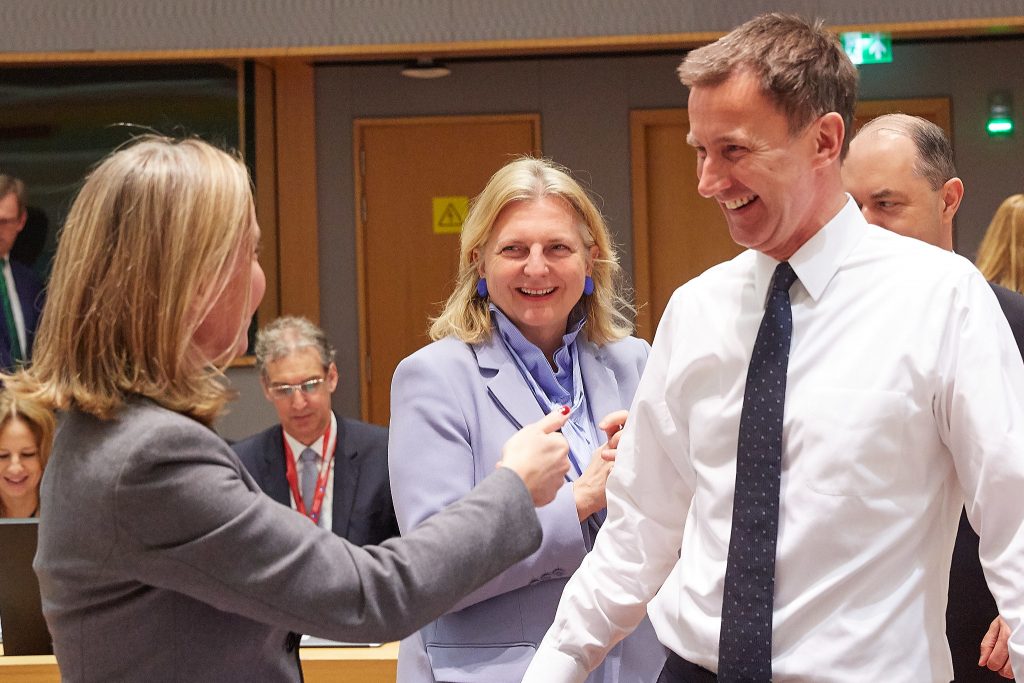
Image Credit: Photonews.at/Georges Schneider
The MP for South West Surrey assumed the mantle of Foreign Secretary, after six years as Health Secretary, following Boris Johnson’s departure in July last year.
Last month, Hunt appointed his former Parliamentary Under Secretary Rita French as a roving ambassador for human rights – a newly created role.
“Standing up for human rights is not only the right thing – it helps to create a stable, more prosperous world,” he said, in statement released to announce French’s appointment.
Leading human rights barrister Kirsty Brimelow QC told RightsInfo that she welcomed the creation of the position, but added the role would become a “laughing stock” if the UK does not practice what it preaches.
Hunt has not actively campaigned against the Human Rights Act, but has criticised how it has been implemented in the UK.
As Culture Secretary, Hunt told journalists that rights were being upheld in a way which was “inconsistent with what Parliament decided when we implemented the Human Rights Act.”
Nevertheless, in 2016 he voted in favour of scrapping the Human Rights Act and, two years later, supported scrapping the Charter of Fundamental Rights.
As Health Secretary, Jeremy Hunt was fiercely criticised for insufficient NHS investment and an unprecedented strain on services.
Another controversy from Hunt’s time as Health Secretary was the junior doctors’ strike following a contract dispute over hours and working conditions. Hunt admitted that the junior doctors “had a point” about the potential impact of overworked doctors on patient safety.
5. Michael Gove, Environment Secretary
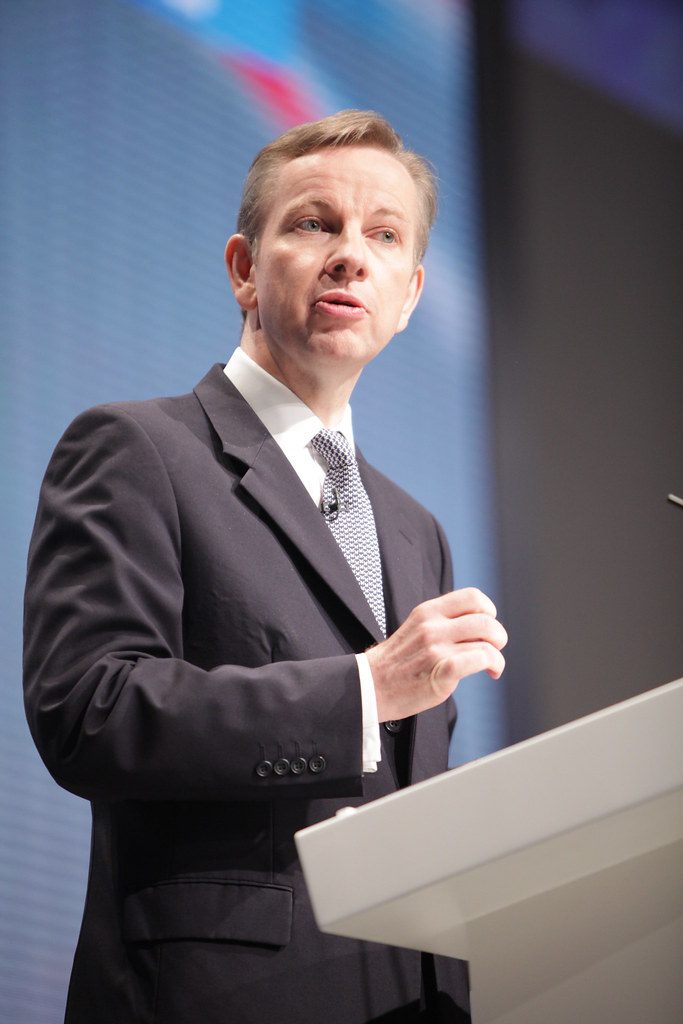
Image credit: Paul Toeman/Flickr.
The Environment Secretary entered Parliament in 2005 and has previously served as Justice Secretary and Education Secretary.
He headed the victorious Vote Leave campaign in 2016 alongside Boris Johnson.
While Justice Secretary, Michael Gove promised to replace the Human Rights Act, which enshrined the European Convention of Human Righs in UK law, with a British Bill of Rights.
His purported rationale for doing so was to assert the supremacy of domestic judges of the European Court of Human Rights in Strasbourg.
Speaking to a House of Commons committee in February 2016, he said: “Human rights are seen as something that are done to British courts and the British people as a result of foreign intervention rather than being something which we originally championed and created and seek to uphold.
But, in a response from campaigners Liberty, this notion was dismissed as “myth-spreading”.
“The Human Rights Act brought rights home, and allowed British judges to interpret and apply the Human Rights Convention for the first time,” wrote director’s assistant Bella Sankey.
According to TheyWorkForYou, Gove also “generally voted against” laws promoting equality and human rights – including voting down the Charter of Fundamental Rights and voting in favour of repealing the Human Rights Act.
6. Sajid Javid, Home Secretary
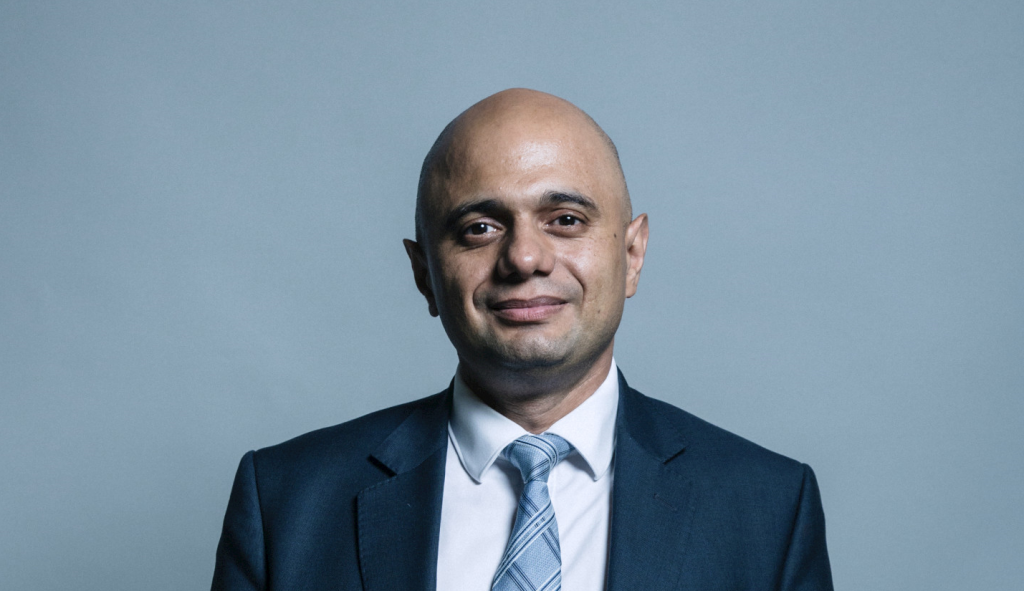
The Conservative MP for Bromsgrove was promoted to Home Secretary in April last year after serving as Communities Secretary.
His predecessor, Amber Rudd, was forced to resign due to the ongoing fallout from the Windrush Scandal, where thousands of people who arrived in the UK legally were threatened with deportation.
In statement released shortly after taking up his new post, Javid said: “I end by making one thing crystal clear: we will do right by the Windrush generation”.
He set up a dedicated taskforce to handle the cases of those affected and regularise the status in the UK, to ensure they have the necessary citizenship documents.
A compensation scheme was also set up to give payments to those who suffered emotional distress or unemployment as a result of the scandal.
In July last year, he also hinted that he would consider ending the indefinite detention of immigrants following a damning report by the former prisons ombudsman Stephen Shaw.
“My ultimate goal is to ensure that our immigration system – including our approach to detention – is effective and humane,” Javid told the Guardian.
However, Javid made headline news in February when he decided to strip east London 19-year-old Shamima Begum of her British citizenship following her decision to join terrorist group ISIS in Syria as a jihadi bride.
International law forbids nations from making people stateless by revoking their citizenship.
He did so hoping that Bangladesh would accept her as a citizen on the count of her parents heritage – but they did not.
Stuck in a Syrian refugee camp, the teenager’s newborn child died weeks later.
Javid’s introduction of knife crime prevention orders – which could place a range of curbs on suspects such as limiting social media use and curfews – has also provoked alarm among human rights groups.
Those who breach the conditions could face up to two years in prison.
The order is set to be trialled in London at an unspecified date this year, after the Offensive Weapons Act was granted Royal Assent earlier this month.
Rosalind Comyn, the policy and campaigns officer at Liberty, said: “These misguided proposals allow the police to impose punitive conditions on people’s everyday activities, based on mere hearsay evidence.”
TheyWorkForYou indicates that Javid has “generally voted against laws” to promote equality and human rights but voted in favour of equal gay rights.
Read more:
- Our list of the original 13 candidates who initially stood for party leadership







